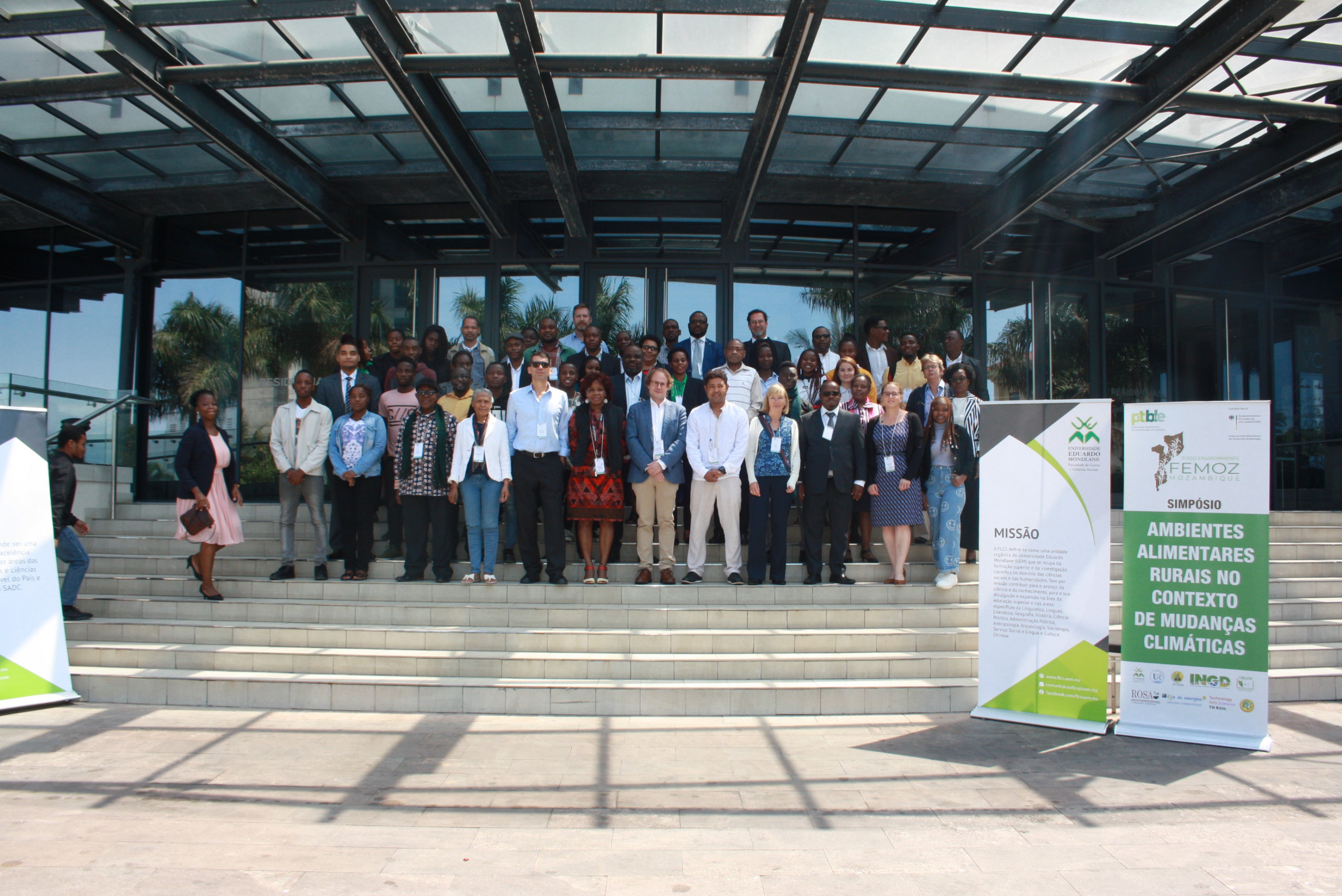TH-Köln
Technische Hochschule Köln
 Activities
Activities
Taking place on the 14th of September, 2022, preliminary results of the previous field research campaign, secondary data, and analyses of other information sources were presented. The aim was to discuss these preliminary results in light of our methodological approaches with representatives from science, politics and civil society, to harness the contributions of these stakeholders for the characterisation of rural food environments in our project regions, and enhance the further research steps.
To introduce the presentations, the FEMOZ project scientific coordinator Dr Rui Pedroso, from the ITT of the TH Köln, presented the FEMOZ project and its conceptual framework with its different research and implementation components as well as its chronological course and thus setting the thematic focus of the symposium.


It followed the communication of our symposium's keynote speaker Prof. Luis Filipe Sanches Goulão from the Instituto Superior da Agronômia of the University of Lisbon. Prof. Goulao elaborated on the concepts of food environments and food systems in a systemic context and showed how food environments could be used as an access point for interventions in food systems. Prof. Goulão has been a leading international scientist on the subject for many years, advising numerous committees and commissions on changes in food systems.

The following panels focused on four different thematic blocks:
Panel 1 dealt with the methods for the empirical measurement of acute food insecurity. The technique applied in the context of the FEMOZ field research in the three districts shows, in some cases, a much higher level of food insecurity among rural households than the surveys conducted at the same time by the State Secretariat for Food Security of the Mozambican Ministry of Agriculture. The ensuing discussion showed the great need for a further in-depth discussion of the topic with the relevant Mozambican institutions. (Communication: Rui Pedroso, ITT, and Adérito Machava , UEM )
Panel 2 looked at the issue of food availability from the perspective of value chains and presented results on diversity, prices, and markets. In all the districts studied, subsistence production plays a vital role in the food security of rural households. The high diversity of food products is striking. Agricultural subsistence production and low market integration in many rural areas are why extreme weather events impact food price developments less than assumed. Food aid in the wake of extreme weather events (such as after cyclones and floods) also seems to have little or local and time-limited influence on price developments. (Communication: Christine Bohn, Frankenförder Forschungsgesellschaft, FFG)
Panel 3 dealt with the importance of the so-called "Neglected and Underutilised Species (NUS)", local food products whose significance for a healthy diet is often underestimated. Many NUS are known in all three study districts, significantly where extreme weather events (floods) affect the food supply. Producers and activists present in the discussion vividly documented the use, nutritional value, and possible forms of dissemination of various products. (Communication: Luís Artur, UEM and Ivo Cumbana, UEM)
Panel 4 addressed the importance of institutional cooperation and coordination between food security and disaster risk management actors. Functioning collaboration is considered an essential building block for the resilience of food systems, especially in times of extreme weather events. However, while coordination among government actors is quite well developed at the national and regional levels, the lack of decentralisation leads to significant bottlenecks in crisis management at the local level. (PCommunication: Luisa Mutisse Chicamisse, UEM and Samuel Quive, UEM)
The preliminary working results of the panels will be further elaborated in the following research phases of the FEMOZ project.
The thematic panels were complemented by a poster exhibition, a market selling sustainably produced products and NUS, and a presentation on using dashboards for food security data management.
You can find more pictures here.